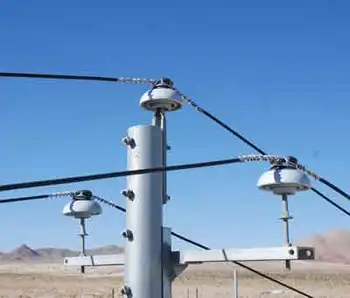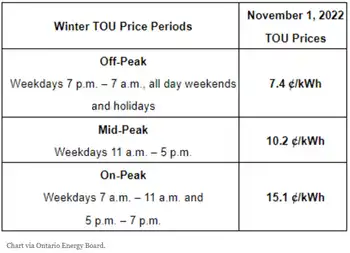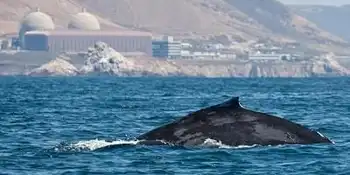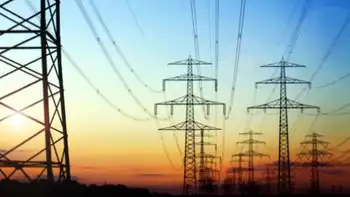Russia and Ukraine Accuse Each Other of Violating Energy Ceasefire
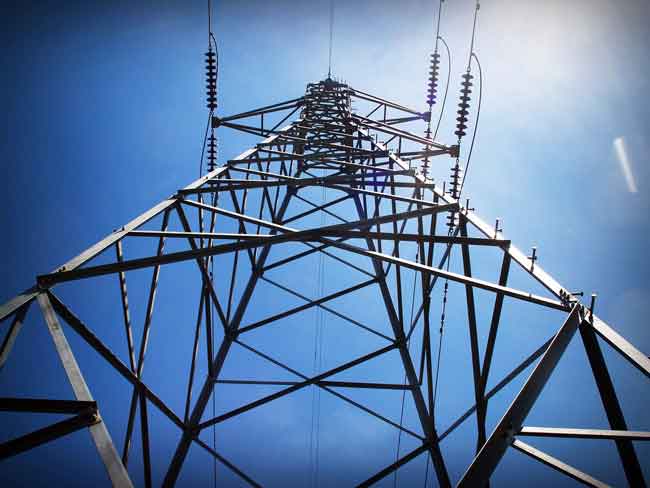
NFPA 70e Training
Our customized live online or in‑person group training can be delivered to your staff at your location.

- Live Online
- 6 hours Instructor-led
- Group Training Available
Russia-Ukraine Energy Ceasefire Violations escalate as U.S.-brokered truce frays, with drone strikes, shelling, and grid attacks disrupting gas supply and power infrastructure across Kursk, Luhansk, Sumy, and Dnipropetrovsk, prompting sanctions calls.
Key Points
Alleged breaches of a U.S.-brokered truce, with both sides striking power grids, gas lines, and critical energy nodes.
✅ Drone and artillery attacks reported on power and gas assets
✅ Both sides accuse each other of breaking truce terms
✅ U.S. mediation faces verification and compliance hurdles
Russia and Ukraine have traded fresh accusations regarding violations of a fragile energy ceasefire, brokered by the United States, which both sides had agreed to last month. These new allegations highlight the ongoing tensions between the two nations and the challenges involved in implementing a truce amid global energy instability in such a complex and volatile conflict.
The U.S.-brokered ceasefire had initially aimed to reduce the intensity of the fighting, specifically in the energy sector, where both sides had previously targeted each other’s infrastructure. Despite this agreement, the accusations on Wednesday suggest that both Russia and Ukraine have continued their attacks on each other's energy facilities, a crucial aspect of the ceasefire’s terms.
Russia’s Ministry of Defence claimed that Ukrainian forces had launched drone and shelling attacks in the western Kursk region, cutting power to over 1,500 homes. This attack allegedly targeted key infrastructure, leaving several localities without electricity. Additionally, in the Russian-controlled part of Ukraine's Luhansk region, a Ukrainian drone strike hit a gas distribution station, severely disrupting the gas supply for over 11,000 customers in the area around Svatove.
In response, Ukrainian President Volodymyr Zelensky accused Russia of breaking the ceasefire. He claimed that Russian drone strikes had targeted an energy substation in Ukraine’s Sumy region, while artillery fire had damaged a power line in the Dnipropetrovsk region, leaving nearly 4,000 consumers without power even as Ukraine increasingly leans on electricity imports to stabilize the grid. Ukraine's accusations painted a picture of continued Russian aggression against critical energy infrastructure, a strategy that had previously been a hallmark of Russia’s broader military operations in the war.
The U.S. had brokered the energy truce as a potential stepping stone toward a more comprehensive ceasefire agreement. However, the repeated violations raise questions about the truce’s viability and the broader prospects for peace between Russia and Ukraine. Both sides are accusing each other of undermining the agreement, which had already been delicate due to previous suspicions and mistrust. In particular, the U.S. administration, led by President Donald Trump, has expressed impatience with the slow progress in moving toward a lasting peace, amid debates over U.S. national energy security priorities.
Kremlin spokesperson Dmitry Peskov defended Russia’s stance, emphasizing that President Vladimir Putin had shown a commitment to peace by agreeing to the energy truce, despite what he termed as daily Ukrainian attacks on Russian infrastructure. He reiterated that Russia would continue to cooperate with the U.S., even though the Ukrainian strikes were ongoing. This perspective suggests that Russia remains committed to the truce but views Ukraine’s actions as violations that could potentially derail efforts to reach a more comprehensive ceasefire.
On the other hand, President Zelensky argued that Russia was not adhering to the terms of the ceasefire. He urged the U.S. to take a stronger stance against Russia, including increasing sanctions on Moscow as punishment for its violations. Zelensky’s call for heightened sanctions is a continuation of his efforts to pressure international actors, particularly the U.S. and European countries, to provide greater energy security support for Ukraine’s struggle and to hold Russia accountable for its actions.
The ceasefire’s fragility is also reflected in the differing views between Ukraine and Russia on what constitutes a successful resolution. Ukraine had proposed a full 30-day ceasefire, but President Putin declined, raising concerns about monitoring and verifying compliance with the terms. This disagreement suggests that both sides are not entirely aligned on what a peaceful resolution should look like and how it can be realistically achieved.
The situation is complicated by the broader context of the war, which has now dragged on for over three years. The conflict has seen significant casualties, immense destruction, and deep geopolitical ramifications. Both countries are heavily reliant on their energy infrastructures, making any attack on these systems not only a military tactic but also a form of economic warfare. Energy resources, including electricity and natural gas, have become central to the ongoing conflict, with both sides using them to exert pressure on the other amid Europe's deepening energy crisis that reverberates beyond the battlefield.
As of now, it remains unclear whether the recent violations of the energy ceasefire will lead to a breakdown of the truce or whether the United States will intervene further to restore compliance, even as Ukraine prepares for winter amid energy challenges. The situation remains fluid, and the international community continues to closely monitor the developments. The U.S., which played a central role in brokering the energy ceasefire, has made it clear that it expects both sides to uphold the terms of the agreement and work toward a more permanent cessation of hostilities.
The continued accusations between Russia and Ukraine regarding the breach of the energy ceasefire underscore the challenges of negotiating peace in such a complex and entrenched conflict. While both sides claim to be upholding their commitments, the reality on the ground suggests that reaching a full and lasting peace will require much more than temporary truces. The international community, particularly the U.S., will likely continue to push for stronger actions to enforce compliance and to prevent the conflict from further escalating. The outcome of this dispute will have significant implications for both countries and the broader European energy landscape and security landscape.









